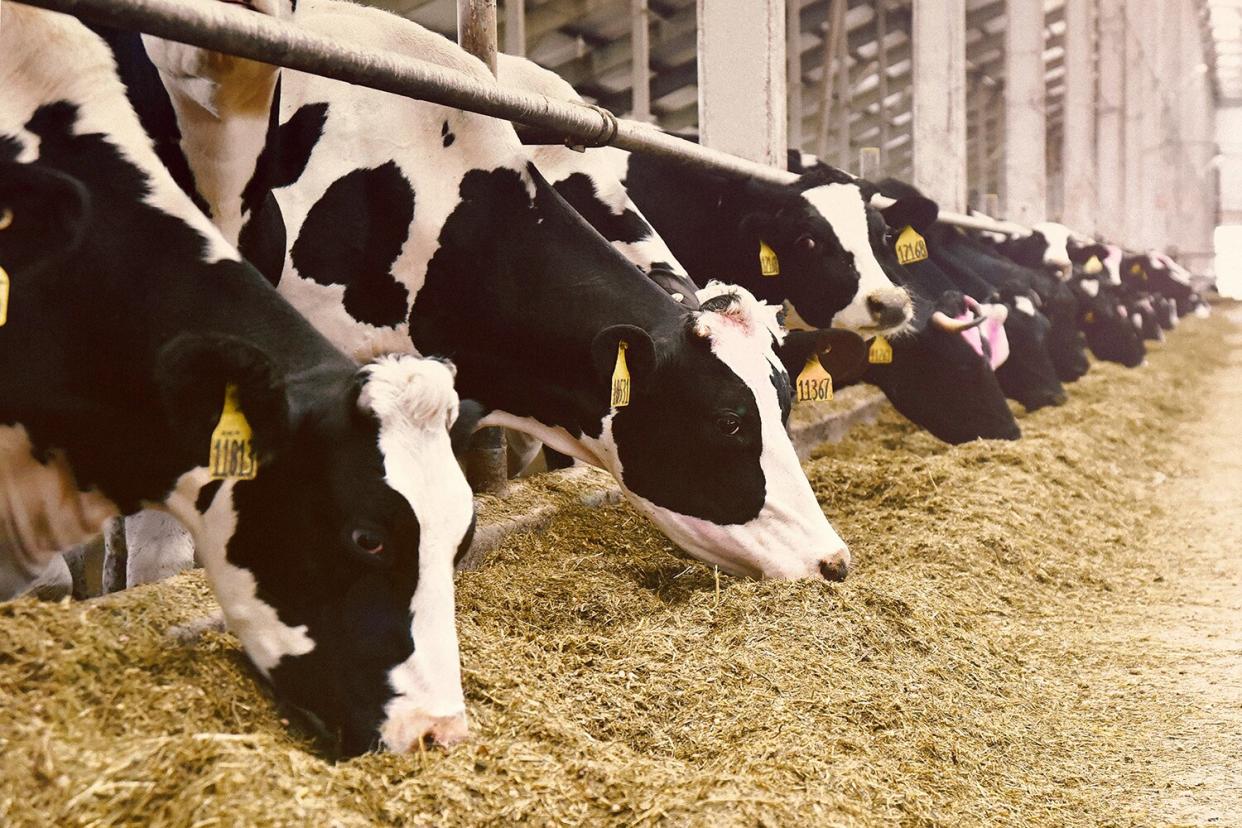Heat Wave Kills at Least 2,000 Cattle in Kansas, Officials Say

Getty
Thousands of cattle died during a recent heat wave in Kansas, according to state officials.
Matthew Lara, a spokesperson for the Kansas Department of Health and Environment, told PEOPLE that at least 2,000 cattle died due to the intense heat and humidity that recently descended on Southwest Kansas.
Lara added that the current cattle death total only represents the facilities that have contacted the agency to assist with the disposal of dead cattle.
RELATED: Mass. Animal Rescue Looking for Homes for 8 'Critically Endangered' Cows Saved from Neglect
"The combination of high temperatures, humidity, and not a lot of wind made it difficult for the cows to stay cool," Lara explained.
AJ Tarpoff, a beef extension veterinarian for Kansas State University, told The Hutchinson News that the conditions were "kind of a perfect storm."
"So when cattle accumulate heat load and have heat stress, it's temperature, humidity, wind speed, and solar radiation that all play a key role," Tarpoff told the outlet. "Thankfully, it's a rare event."
RELATED: Cows Escape Meat Packing Facility, Run Wild in Los Angeles Neighborhood Before 1 Is Shot by Police
Scarlett Hagins, vice president of communications for the Kansas Livestock Association, told The Hutchinson News that the animals were unable to adapt to the sudden increase in temperature.
"Out in the western Kansas area, there was that area that saw a 10- to 14-degree increase in temperature from that Friday to Saturday — kind of almost overnight, and the humidity increased pretty rapidly," she said. "They saw very little wind and they weren't cooling off at night."
The deaths come as the cattle industry in the U.S. continues to struggle with reduced herds due to drought and increased feed costs as Russia's invasion of Ukraine causes limitations on the global grain supply, according to Reuters.
The state of Kansas is home to more than 2.4 million cattle making it the country's third-largest supplier behind Texas and Nebraska, the outlet reported.

